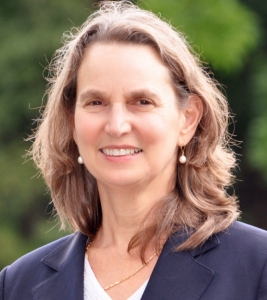Primary Care’s Value Proposition and the Damage Done by the Pandemic
By Barbra G. Rabson
(April 2021)
 MHQP has been measuring and publicly reporting about quality and patient experiences in primary care for nearly two decades. Never before have I known a moment such as this when I worry for the future of primary care in our state.
MHQP has been measuring and publicly reporting about quality and patient experiences in primary care for nearly two decades. Never before have I known a moment such as this when I worry for the future of primary care in our state.
MHQP first began to investigate the health of primary care in Massachusetts in December 2018 when we assembled a diverse group of patient, provider, payer and research thought leaders at a Roundtable on Patient Engagement and Affordability. That group raised many issues and concerns regarding the barriers in our healthcare system that routinely prevent patients from reliably getting the right care at the right time and in the right place. The five most significant barriers identified were issues related to access, trust, transparency, health literacy, and patient capacity. We also identified the importance of a strong working alliance between the patient and their PCP as a foundation for effective care.
Building on that meeting and those ideas, we convened a Roundtable on the Future of Primary Care in the fall of 2019 to chart our vision of what we wanted our future primary care system to look like. Governor Baker had just recently proposed an unprecedented increase of investment in primary care and behavioral health in Massachusetts, and we wanted our collective voice to be heard on where those resources should be allocated. Our discussion was hopeful about the relevance and sustainability of primary care. Of course, at that time, we could not have imagined what was to come – i.e., how the pandemic would exacerbate the fragility of primary care and expose how much primary care is undervalued in this state.
A survey conducted by Song et al. during the first weeks of the crisis revealed the pandemic’s devastating impact on primary care practices in Massachusetts. 54% reported a decline in the average total revenues per clinical FTE per month in March 2020 compared to pre-pandemic levels. Independent practices faced larger percent reductions in revenues than non-independent practices. Further, more than half of the primary care practices surveyed reported that they were likely to cut salaries of providers or employees, cut services or other operating expenses, and furlough or lay off employees in response to the pandemic.
The authors also provided some of the respondents’ personal anecdotes, which are striking, to say the least. Here are a few snippets:
- “I have never until now feared for my practice’s viability. I don’t think any amount of financial assistance will get us to pre-Covid-19 operation levels.” — Family Medicine practice
- “The advent of Covid-19 has decimated our practice.” — Geriatric Psychiatry practice
- “The pandemic has caused tremendous uncertainty and threatened to end primary care as we know it.” — Family Medicine practice
Clearly, the impact of the pandemic on primary care has not been just financial. This became even more evident when the very value of primary care was undermined by a vaccination process that all but circumvented primary care providers. I recently wrote about it in a Letter to the Editor published by the Boston Globe:
Felice J. Freyer’s article “Primary care doctors say they’re good at vaccinating but are being shut out’’ (Page A1, Jan. 30) illustrates yet another weakness in our health care system revealed by the COVID-19 pandemic. Primary care practices have been under-supported and undervalued in our state — and throughout the nation — for years. And now, when their expertise and infrastructure are desperately needed to help protect their most vulnerable patients against this deadly disease, we have a precarious patchwork of primary care practices, and the authorities are turning elsewhere. It is long past time for us to make appropriate investments in the state’s primary care system as the front line of health care. We would certainly see a return on such an investment, especially during a public health crisis.
I know from personal experience that when my PCP, who is part of a large physician network, could not help me get access to a vaccination once I became eligible, it was a frustrating and disappointing experience. This kind of experience can undermine the patient/provider working alliance that so many PCPs have worked so hard to achieve.
The value proposition for primary care is to keep people healthy and we know that primary care can be very effective at keeping patients out of the hospital. It has certainly played this role during the pandemic. Yet, primary care’s secondary role (at best) in the state’s vaccination program – the largest targeted effort to keep people healthy and out of the hospital that I can remember – has led to more fragmented care and is an alarming indication of primary care’s current place in our state’s healthcare system.
This perspective has been reaffirmed by a series of national surveys conducted by the Larry A. Green Center, which has been tracking the relationship between the pandemic and primary care practices. A recent survey (March 2021) of 765 primary care physicians across the country, 46 of whom are in Massachusetts, reveals that:
- PCPs confirm that primary care has provided crucial services to keep patients healthy during the pandemic by offering mental health support (70% MA, 72% US), increasing support for patients with food insecurities (28% MA, 27% US), adding or extending services to patients not usually provided in order to prevent use of hospital or specialty care (54% MA, 46% US), and monitoring COVID-19 patients at home or in the practice to prevent use of hospital or specialty care (76% MA, 68% US).
- 65% of PCPs in Massachusetts say their patients are calling their practices and demanding to be vaccinated, as compared to only 46% in the national sample. Yet, only 11% of Massachusetts providers say that their state has actively engaged primary care to help with vaccinations, as compared to 20% nationally.
- And maybe most alarming, 30% of PCPS in both the Massachusetts and national samples say that their burnout is at an all-time high, and 33% of providers in the Massachusetts sample say they will no longer be working in primary care either as soon as the pandemic crunch is over or within 5 years from now.
I’ve said it before and I’ll say it again: primary care is at a dangerous crossroads. The pandemic has highlighted key vulnerabilities in primary care, and these vulnerabilities make primary care an easy target for short-term profit-oriented venture and private capital companies. We need to move quickly if we want to prevent the industrialization of primary care. However, the pandemic has also created a receptive environment and impetus to make significant changes to how primary care does its work and how it is paid. These changes will not be easy, but if pursued with care and creativity, they can lead to a more resilient, sustainable and equitable primary care system as the foundation of our healthcare system for years to come.
MHQP is now taking steps to develop a way to monitor the health of primary care in Massachusetts as the pandemic begins to lift (fingers crossed). We welcome your ideas! Please stay tuned for more information about that in the weeks and months to come.
